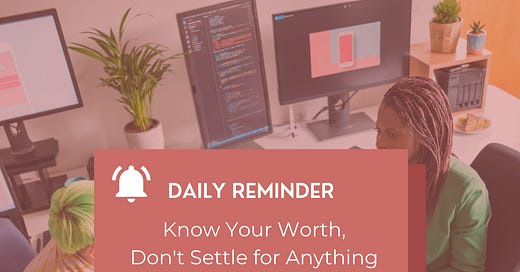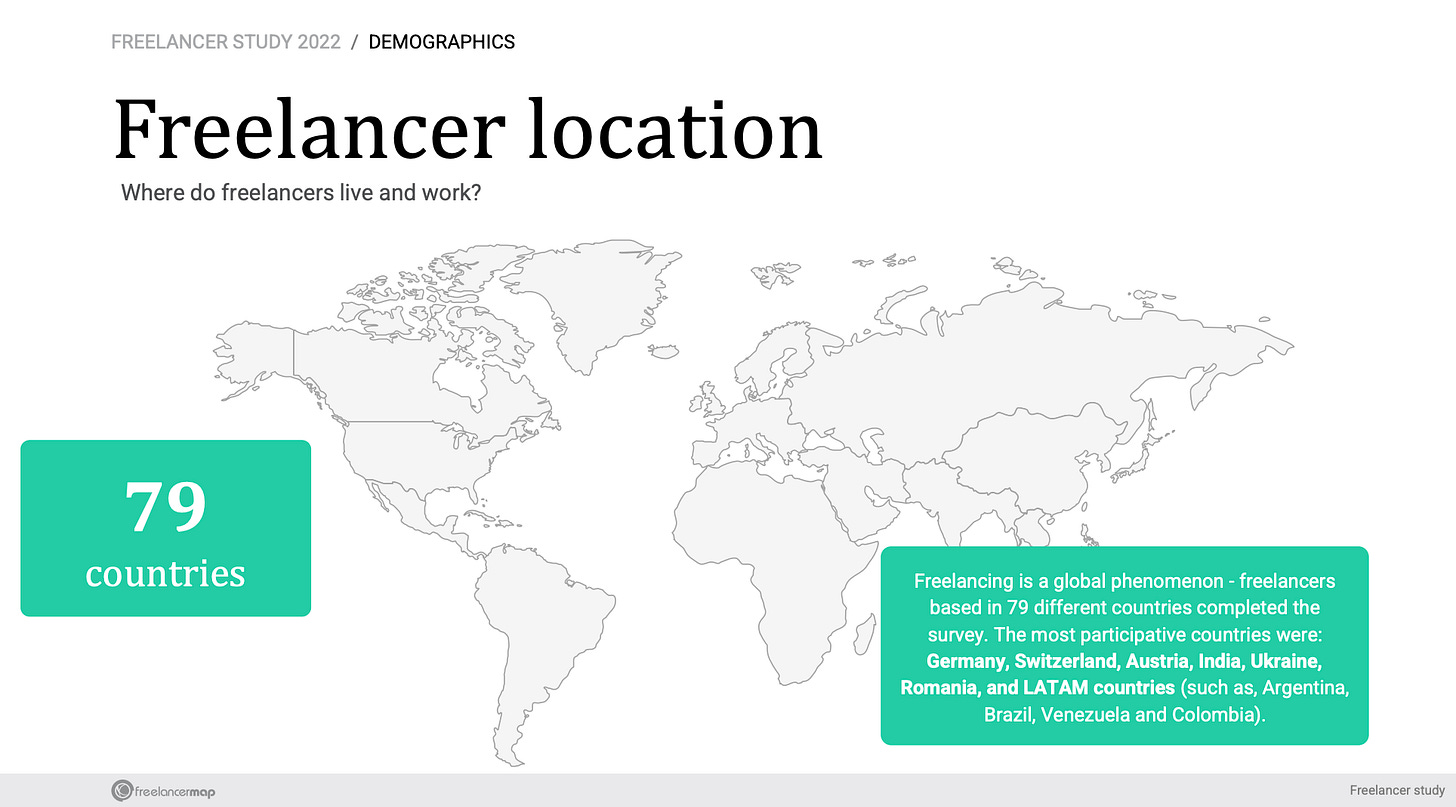Women Freelancing in Tech & Web3
Trends, Tips for Getting Paid, and What to Do if You're Not
Are you a woman working as a freelancer in the tech industry, including Web3? Or are you considering freelancing in this field? While the tech industry can be challenging for women, freelancing can offer flexibility and opportunities for growth. And remember that you have the right to be paid for the work you've done. Don't let anyone take advantage of you! Let’s see how to make sure you're paid fairly and on time, and know what to do if a client doesn't follow through on their payment commitments.
More Women Are Entering the Tech Freelancing Industry
According to recent reports, women freelancers in tech are increasing in number. The European Forum of Independent Professionals found that women make up 34% of the self-employed workforce in the EU's ICT sector. Freelancers Union states that women make up 47% of the overall freelance workforce in the United States. Additionally, a report by Upwork declares that the number of women freelancers has increased by 87% since 2014, and they now represent 36% of the global freelance workforce.
This is good news, as it shows that more women are taking advantage of the flexibility and opportunities that freelancing in tech can offer.
Another trend is the increasing use of online marketplaces and platforms to find work. This can be a great way to get started as a freelancer, as it allows you to find clients and projects without having to spend a lot of time networking and marketing your services. However, it's important to choose reputable platforms and to be cautious of clients who may not pay as promised.
How to Ensure You Get Paid as a Woman Freelancer in Tech & Web3
Getting paid as a freelancer can be challenging, but there are steps you can take to protect yourself and ensure you get paid for your work. Here are some tips:
Set clear payment terms: Make sure your contract with the client specifies payment terms, including a contractual non-payment consequential clause, to establish clear expectations and consequences if payment is not made. This will provide a legal basis for taking further action if terms are not respected. It is important to note that the effectiveness of a non-payment consequences clause will ultimately depend on the specific language used in the contract and the legal jurisdiction in which it is enforced.
Invoice promptly: Don't wait to invoice your clients. Send your invoice as soon as the work is completed or at regular intervals, depending on your agreement. Your invoice should include all the necessary details such as the project description, itemised list of services rendered, and the payment due date. If you can, use invoicing software that automates the invoicing process and makes it easier to track payments.
Follow up: If payment is late, follow up with the client promptly to find out why and to remind them of the payment terms. Be firm but professional in your communications. As a general rule of thumb, it's recommended to follow up on unpaid invoices at least three times. The first follow-up should be a friendly reminder shortly after the payment deadline has passed. If there is no response or payment, a second follow-up should be sent, which can be a bit more assertive in tone. The third follow-up should be a final notice that the invoice is now past due and that legal action may be taken if payment is not received.
Consider using escrow services: Some platforms and marketplaces offer escrow services, which hold the payment in a neutral account until the work is completed to the satisfaction of both parties. The affordability of escrow services depends on various factors, such as the size of the project, the complexity of the payment schedule, and the services required. However, some of the most affordable escrow services for freelancers in Europe and the US include Escrow.com, Payoneer, and Transpact. Don’t forget to explore decentralised escrow platforms or multisig wallets if you’re paid in cryptocurrency. Each of these platforms offers different pricing structures, so it's important to compare their fees and features to find the best fit for your needs.
Charge in advance according to a milestone schedule: This involves dividing the project into distinct phases or milestones and setting payment deadlines for each one. This not only ensures that the freelancer gets paid in a timely manner, but also provides transparency and accountability for both parties. It is important for freelancers to clearly communicate these payment terms in the contract and ensure that the client agrees to them before starting the project.
What to Do if You're Not Getting Paid
Despite your best efforts, there may be times when you're not getting paid as you should. Here are some steps you can take:
Contact the client: Start by contacting the client to find out why payment is late or overdue. Be clear about the payment terms and ask for a timeline for payment.
Send a demand letter: If the client is unresponsive, consider sending a demand letter. This should be a formal letter that outlines the debt owed, the payment terms, and the consequences of non-payment. Consider using a debt recovery agency if the client is still unresponsive.
Seek legal help: If all else fails, you may need to take legal action to recover the debt. Consider consulting a lawyer or legal advice service to find out your options.
Use a debt recovery agency: Debt recovery agencies usually have a minimum debt amount that they will work on. This amount can vary depending on the agency, but typically it starts at around €500 or £500. However, some agencies may have higher minimum debt amounts. They can offer services ranging from tracing debtors and negotiating repayment plans to taking legal action if necessary. With fees starting as low as £10 per letter or a minimum of £25 per case, it's worth considering these options if you're struggling to get paid. It's best to check with the agency directly to confirm their fees and commission rates.
Take Control of Your Freelancing Career
Freelancing in tech can offer women flexibility and opportunities for growth, but getting paid can be a challenge. By setting clear payment terms, invoicing promptly, and following up, you can increase your chances of getting paid as you should. And if you're not getting paid, don't hesitate to take action to protect your rights and recover what you're owed. Remember, you have a right to be paid for the work you've done, so don't let anyone take advantage of you.





